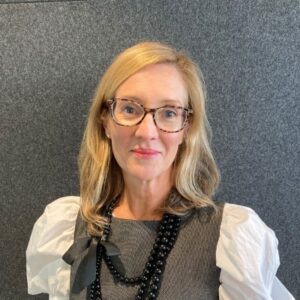Retirement has to come out of the broom cupboard – and it’s starting
6 August 2024 By Victoria Tomlinson

Why retirement is a weird concept
Only 39% of people retire voluntarily; popular culture holds it out as a time of skipping on beaches with a beaming smile; and yet the reality can be so awful that many experience terrible mental health and a few even take their lives.
In professional firms, partners hardly dare whisper the word, let alone properly discuss thoughts about what and when – lest they lose clients and their team nudges them out of the way.
Next-Up Professional Services Retirement Forum
In May, we held the first in-person meeting of the Professional Services Retirement Forum, where firms share how they are supporting partners and employees at this challenging stage of life. Before, we asked the 50 firms attending if they would complete a short questionnaire to say where they are at in terms of this support.
From this, it is clear that this topic is high on the agenda of most firms. No-one feels they have achieved best practice everywhere. Most firms are still starting out – some things are ad hoc, some things are going well and firms are all at different stages of implementation.
The areas where firms are the strongest – and many say they are doing things well are around
- Partners becoming good ambassadors (54% do this well)
- Retaining clients/revenues (46% do well)
- Perceptions of treating partners well (38% do well) and
- No unnecessary costs are incurred (42% do well)
Having said that, if we flip these stats around, there is still a lot of room to improve.
Now that firms are starting to offer more support to partners, a number are being challenged as to what they do for employees: 31% are planning to offer help and 31% are already implementing plans.
What happened at our latest forum?
Normalizing conversations about retirement
The Forum meeting itself was fantastic, as you can see from this video. We had 11 speakers and plenty of time for group discussions when there was really lively discussion. The surprise that came out of discussions was that the Next-Up workshops are normalizing conversations about retirement. To be honest, I had not thought about it quite like this.
In the past, if firms offered support at all, it was usually to give individual coaching. The challenge of this is the confidentiality of the process. Rarely does anyone know the partner’s thoughts about timing or how they want the last year or two to look – such as going down to four days a week in the last year or whatever.

What else are firms doing to help on this tricky retirement topic?
The other key findings were
- 31% of firms say they are in the process of implementing a culture for partners to be comfortable discussing retirement. 23% are planning to; 23% say it is ad hoc and just one firm feels they have achieved best practice
- On the question of how well partners engage with retirement planning activities, 31% say they do this well; 39% are in the process of implementing, 23% say it is ad hoc and again two firms feels they have achieved best practice
- Firms are really working at helping partners to know what they want to do beyond partnership. 23% feel they do this well; 36% say it is ad hoc and the rest are at various stages of planning or implementing
- There was only one firm feeling they have achieved best practice in each of the areas of: developing strong successors; having good leavers and ambassadors; treating retirees well; not incurring unnecessary costs; and offering relevant support
- It is clear that it is still early days in reducing partner fee earning targets leading up to retirement. 23% say they do this well; 23% don’t typically do this; 15% say it is ad hoc and 23% say they are implementing and one firm achieved best practice
- There is an increasing focus on ensuring successors are developed – 46% are implementing plans and 23% says it is ad hoc
Opportunities for professional services firms
It is heartening to see this increasing focus in firms. With the 100-year life, partners can easily expect to be retired for longer than they worked. Most are fit and healthy when they retire – frankly, at their peak. Increasingly they want to continue using their skills, even if they don’t want to keep working 24/7.

Liz Gray, EMEI partner transition leader, at EY says that just five years ago, fewer than 40% of partners engaged with business after leaving their firm. Now it is more than 90% – as she says, “Each one is contributing to our economy and enhancing their personal wealth”.
When you think of all these partners engaging with business at this next stage of life, that has to be full of opportunities for their previous firms, even if hard to define? To say nothing of reducing the mental health impact and most of all, setting partners up for a fulfilling unretirement – thanks and reward for all those years of dedication to their firms and clients?



